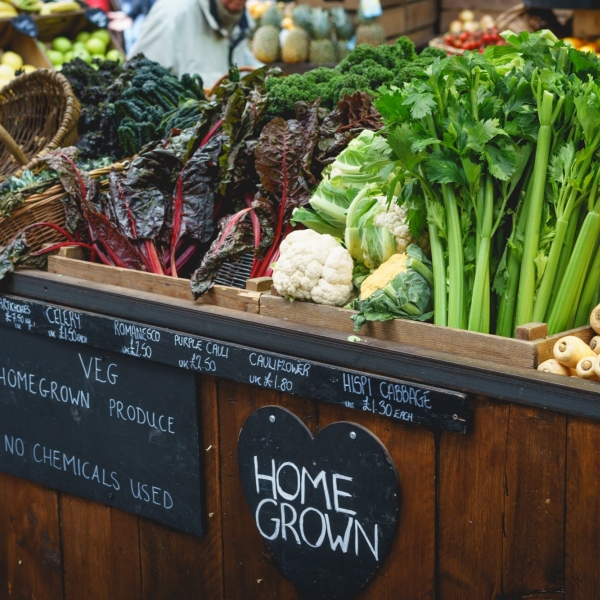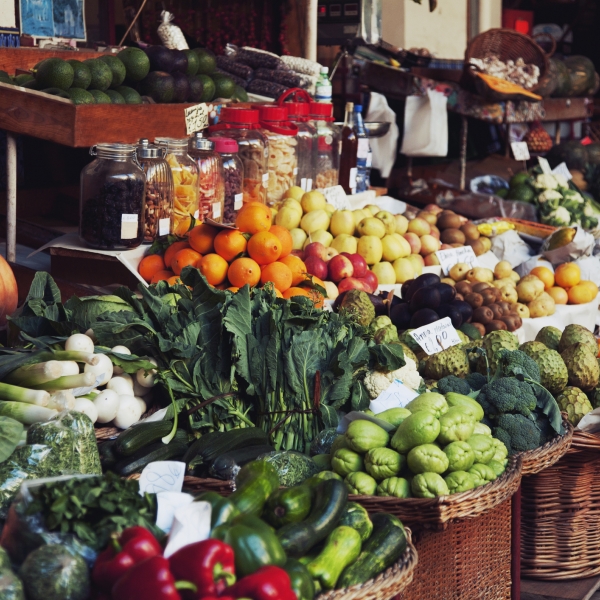Food Systems: a policy priority for World Obesity
WHO now recognises obesity is a complex, multifactorial disease. One of the key factors, or ROOTS, that contribute to obesity is food. Other roots include genetics and biology as well as social and cultural factors like stigma or, conversely, societal preference for overweight.
Food systems – encompassing all food production processes from “farm to table” – play an important role and have direct consequences on human and planetary health. However, when it comes to obesity, not all foods are equal. Today, poor diets are responsible for more than 11 million premature deaths globally. Everyone needs access to nutritious diets to maintain a healthy weight and protect themselves from other chronic diseases like diabetes and cancer.
However, across the world, 2.4 billion people face food insecurity and the cost of eating a healthy diet has increased, and is now considered unaffordable for 3 billion people. Across Africa, Asia, Latin America and the Caribbean access to healthy diets is increasingly expensive, with access exacerbated by the COVID-19 pandemic. For people living with obesity (many of whom will be included in this 3 billion), lack of access to a healthy diet can be a major barrier in recovery. Obesity is a relapsing disease caused, in part, by excessive consumption of highly palatable ultra-processed foods high in sugar, salt and fats. Ultra-processed food, now seen across the globe, is contributing to the rapid rise in obesity. Creating healthy food environments is thus an essential component of World Obesity’s ROOTS declaration, not only to prevent but also to help manage and treat obesity throughout the life course.
Advocacy on food systems is now a policy priority for World Obesity we are now taking forward in a number of ways…
The UN Food Systems Summit (UNFSS)
The UN Food Systems Summit will serve as a historic opportunity to empower all people to leverage the power of food systems to drive our recovery from the COVID-19 pandemic and get us back on track to achieve all 17 Sustainable Development Goals (SDGs) by 2030.
Over the past 18 months, the Summit has brought together all UN Member States and constituencies around the world – including thousands of youths, food producers, Indigenous Peoples, civil society, researchers, private sector, and the UN system – with the aim to bring about tangible, positive changes to the world’s food systems.
As outlined in this previous blog: Advancing our obesity agenda at the UN Food Systems Summit, World Obesity has been actively involved in the Summit preparations. Our President John Wilding is one of the Summit’s Champions and co-authored this blog with the UN Special Envoy Dr Agnes Kalibata, highlighting how: “As the number of people affected by obesity increases in nearly every country in the world, particularly in low- and middle-income countries, governments must work with actors across the food system to reverse this trend and redesign food systems to deliver human as well as planetary health.”


In the lead up to the Summit, World Obesity held two high level events that you can watch online:
- Obesity: Advancing the global food and health agendas
- The role of food systems in addressing the triple burden of malnutrition
As described in the 2019 Lancet Commission on Obesity - The Global Syndemic - actions to address obesity can also help tackle undernutrition and climate change. World Obesity will be urging actors at the UNFSS to think in Syndemic terms about the opportunity for ‘triple duty actions’ that can help solve health and sustainability challenges. For example, incentivising more local, sustainable food production, encouraging consumers to eat less red meat and holding governments to account when they fail to implement healthy and sustainable dietary guidelines.
“Responsible consumption” has been a prominent message in the lead up to the upcoming UN Food Systems Summit. This is a serious concern as we know that narratives around individual responsibility increase stigma and blame. In our Pre-Summit event, Prof. Srinrath Reddy from the Public Health Foundation of India argued the concept of ‘choice’ is a fallacious one, with consumption ‘choices’ being conditioned by market pressures, the unethical promotion of unhealthy products and constrained by financial means. Emerging from the Summit, a new coalition on healthy diets is an opportunity for coordinated action to improve access to affordable nutritious diets. However, this coalition will only succeed if we ensure it is focused on government led action to create healthy food environments where people can be free from conditioning and financial constraints.
The Summit will be a completely virtual event on Thursday 23rd September 2021 during the UN General Assembly High-level week. Register now to participate and play your part in helping change the narrative around food security and ensure overweight and obesity is taken seriously by policymakers at the UNFSS and beyond. We are calling for health to be at the heart of the UN Secretary-Genera’s statement of action.

New policy dossier
To underpin our advocacy and to help researchers, policy makers, and advocates better understand the links between obesity and food systems, World Obesity is launching a new policy dossier. The dossier will collate evidence, resources, and materials relating to obesity and food systems. The dossier will also explore global recommendations and country-specific case studies on policies and interventions that have been or should be implemented to transform food systems for healthy diets and improved nutrition.
The dossier will be launched in September 2021 ahead of the UN Food Systems Summit: watch this space!

Collaborating with allies
Strong partnerships are at the heart of World Obesity’s strategy and we work with allies across the food system space, including the Food and Agriculture Organization (FAO) and The Global Alliance for the Future of Food. Recognising the interconnectedness of food, climate and health issues, this year we have joined the Health Climate Network, which is an alliance of organisations, including Wellcome Trust, working to put positive health outcomes at the centre of responses to the climate crisis. World Obesity helped develop a briefing on food systems that will be used in advocacy around COP26. Read the briefing: Diet and Food Systems for Health, Climate and Planet.
Collaborating with our UK member, the Association for the Study of Obesity, we recently published a blog analysing the UK’s new food strategy. Read: Reflections on the National Food Strategy - will it optimise the UK’s food system for nutrition and equity?


World Obesity is committed to working with young people, who are at the forefront of action to transform food systems. On International Youth Day, our Senior Policy Manager Margot Neveux published a blog in which she and co-author Dipty Chowdhury called for youth to be at decision making tables: “We must be central to the dialogue, because just as with climate change, the consequences of unhealthy and unsustainable food systems will impact us the most.”
Action on food systems is one of the core pillars of the new Global Obesity Coalition we have established with UNICEF and WHO. In the days before the UNFSS, World Obesity and our Coalition partners will host The Global Obesity Forum 2021. Building on the momentum of our previous high-level events, this invite-only Forum will bring together key players from across the global obesity community to discuss the Global Obesity Coalition’s priorities and co-create solutions around the theme of changing the narrative.
Get involved
World Obesity is keen to hear from people interested in or working on obesity and food systems. Please contact Rachel Thompson: rthompson@worldobesity.org if you would like to share ideas or find out more about any of the items above.
Contact us